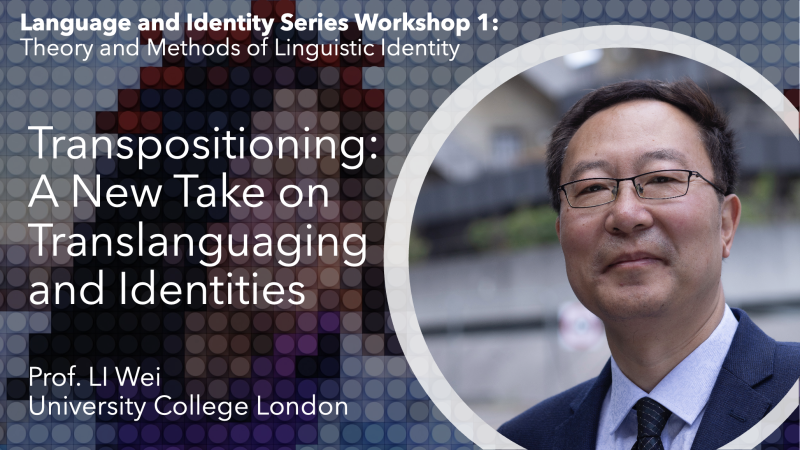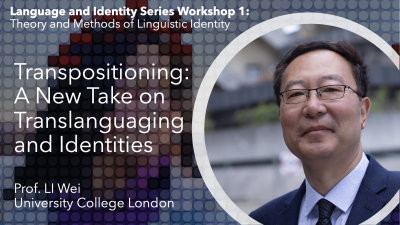Transpositioning: A New Take on Translanguaging and Identities (ft. Prof. LI Wei)

| Date(s) | Thursday, 2 February 2023, 17:30 - 18:30 JST |
|---|---|
| Venue |
Zoom Webinar (Register) |
| Registration | Pre-registration required |
| Language | English (with Japanese simultaneous interpretation) |
| Abstract |
Language and Identity Workshop Series.
This talk extends the concept of translanguaging by looking at transitional mutilinguals’ journey of Transpositioning – a process where people break from their pre-set or prescribed roles and switch perspectives with others, through communicative practices such as translanguaging and transmodalities, by releasing one’s self from conventions and fostering a greater sense of possibility, freeing ourselves from habitual thinking, and building empathy for others involved in the process. Transpositioning highlights the multiple and interwoven layers of emplacements and positionings that are entailed in communications which cross and transcend the boundaries that have historically shaped our thinking about the world and its inhabitants. Transpositioning requires border thinking, i.e. thinking from the outside, using alternative epistemological traditions and alternative languages of expression. Methodological implications of taking a transpositioning perspective on doing identity in a diverse and ever-changing world will be discussed. |
| Program |
Lecture: Q&A Moderator |
| Speaker Profile |
Professor LI Wei is a Director and Dean of the UCL Institute of Education at the University College London. He holds a Chair in Applied Linguistics and is a Fellow of the British Academy, Academia Europaea, Academy of Social Sciences, UK, and Royal Society of Arts, UK. |
| Organized by | Tokyo College, the University of Tokyo |
| Contact | tokyo.college.event@tc.u-tokyo.ac.jp |















